How to Choose the stage light bar manufacturer and supplier in us?
- How to Choose the Stage Light Bar Manufacturer and Supplier in US?
- Why choosing the right stage light bar supplier matters
- Define your technical requirements for the stage light bar
- Check certifications and regulatory compliance
- Evaluate production capacity, R&D and manufacturing footprint
- Quality control, testing and expected lifetime
- OEM/ODM, customization and software compatibility
- Price versus total cost of ownership for stage light bar solutions
- Example cost comparison (assumptions)
- Delivery terms, lead times and logistics for US buyers
- Warranties, returns and after-sales support
- Reputation, references and case studies
- Checklist: How to evaluate and choose
- Why consider LQE as your stage light bar manufacturer
- Negotiation tips and contract items to include
- Conclusion: Make an informed, risk-managed decision
- Frequently Asked Questions
How to Choose the Stage Light Bar Manufacturer and Supplier in US?
Why choosing the right stage light bar supplier matters
Buying the right stage light bar is more than picking the cheapest unit. The right manufacturer or supplier impacts performance, uptime, safety, compliance, and long-term operating cost. Whether you manage a touring rig, a theater, a broadcast studio, or a nightclub, the correct stage light bar choice ensures consistent color, reliable control (DMX/Art-Net/RDM), predictable maintenance, and lower energy bills. Use this guide to evaluate suppliers and manufacturers with keywords like stage light bar, stage light bar manufacturer, and stage light bar supplier embedded naturally throughout the selection process.
Define your technical requirements for the stage light bar
Start by listing the technical must-haves. Clear technical requirements let you compare suppliers on equal terms and reduce surprises during deployment. Typical technical items include fixture type (LED bar vs. pixel bar), LED chip brand, lumen output per meter, color temperature and color mixing (RGBW / RGBA / Tunable White), CRI or TM-30 for accurate color, beam angle, number of pixels/channels, power consumption, control protocols (DMX512, Art-Net, sACN, RDM), and the required IP rating for outdoor/indoor use. Also include mechanical needs: mounting points, length options, connector types, and weight limits. Properly defined specs will guide you to manufacturers who can meet your exact performance and integration needs.
Check certifications and regulatory compliance
US buyers must ensure lighting equipment complies with local safety and electromagnetic standards. Look for UL or ETL certification for electrical safety in the US market. CE and RoHS indicate compliance with European safety and hazardous material restrictions if you import fixtures internationally. For outdoor or wash applications, check the IP rating (IEC 60529 standard) — IP65 and above is typical for weather-resistant bars. For electromagnetic compatibility, confirm relevant FCC declarations. Certifications demonstrate a manufacturer's commitment to compliant production and reduce liability risk for venue owners.
Evaluate production capacity, R&D and manufacturing footprint
For large projects or repeat orders, manufacturing capacity and R&D capabilities matter. A manufacturer should clearly state factory size, annual output, and production lines. For example, LQE was founded in 2008, is headquartered in Foshan, China, and operates a production base of about 10,000 square meters with an annual production capacity of 100,000 lighting fixtures and 80 national patents. Those metrics indicate the ability to handle large orders, continuous product development, and IP-backed designs. Ask potential partners for production lead times, minimum order quantity (MOQ), and expansion plans to ensure supply stability for your projects.
Quality control, testing and expected lifetime
Quality control directly affects field reliability. Confirm that the manufacturer performs standardized QC steps such as incoming component inspection, PCB testing, full functional testing, burn-in (usually 24–72 hours), waterproof testing for IP-rated units, and final inspection before shipment. For LEDs, expected lifetime is commonly specified as L70 > 50,000 hours (meaning light output remains above 70% after that time). Ask for MTBF/MTTF data, failure rates during burn-in, and sample test reports. A robust warranty (2–5 years typical for professional fixtures) paired with clear RMA procedures shows trust in product longevity.
OEM/ODM, customization and software compatibility
If you need custom dimensions, optics, firmware, or brand labeling, evaluate the manufacturer's OEM/ODM capabilities. Many venues and rental companies need manufacturer flexibility for custom beam spreads, pixel mapping firmware, or alternate power/input connectors. Ensure the supplier can handle firmware updates and provide documentation for protocols like DMX512, Art-Net or sACN. Confirm compatibility with your existing console and any required pixel-mapping software. Manufacturers with an experienced R&D team and firmware support reduce integration risk and future-proof your installation.
Price versus total cost of ownership for stage light bar solutions
Purchase price is only part of the equation. Total cost of ownership (TCO) includes energy use, lamp/driver replacement, maintenance labor, shipping, and downtime costs. LED stage light bars typically consume significantly less power than legacy halogen or discharge fixtures, reducing energy and cooling costs. A realistic assessment compares initial price with 3–5 year operational costs.
Example cost comparison (assumptions)
Below is an illustrative comparison to help evaluate TCO. Assumptions are conservative and should be adjusted to your specific rates and usage.
| Item | Legacy fixture (discharge/halogen) | LED stage light bar |
|---|---|---|
| Average power draw (W) | 700 | 200 |
| Rated lifespan (hours) | 2,000 | 50,000 (L70) |
| Energy price (USD/kWh) | 0.12 (example) | |
| Annual hours of use | 1,000 | |
| Annual energy cost | 84 USD | 24 USD |
| Expected maintenance (lamps/parts) per 5 years | 2 lamp replacements + labor (~400 USD) | minimal parts, fan/driver replacement possible (~100 USD) |
| 5-year estimated operating cost (energy + maintenance) | 820 USD | 220 USD |
This simplified table shows LED bars can produce meaningful savings over a typical ownership period. Always run numbers with your local electricity cost, usage profile, and maintenance rates.
Delivery terms, lead times and logistics for US buyers
Understand shipping terms (EXW, FOB, CIF) and whether the manufacturer handles US import documentation. Confirm lead times for samples (often 1–4 weeks) and production orders (commonly 4–12 weeks depending on quantity and customization). For fast-moving rental or production businesses, look for suppliers with US-based stocking, local repair centers, or authorized distributors to shorten downtime. Ask about spare parts availability and recommended spare inventory per number of fixtures deployed.
Warranties, returns and after-sales support
Good after-sales support is a competitive advantage. Confirm warranty length, coverage scope (LEDs, drivers, electronics, accessories), RMA process, repair turnaround times, and whether the manufacturer provides firmware updates. Ask for an escalation contact and local support options in the US. Transparent spare-part pricing and on-site repair training reduce long-term operating costs and downtime for venues and rental houses.
Reputation, references and case studies
Ask for references and case studies from similar projects — theaters, touring productions, broadcast, houses of worship, theme parks, or large installations. Reputable manufacturers will share project lists, performance videos, or technical testimonials. Check third-party reviews, rental house feedback, and any certifications of excellence. LQE, for example, emphasizes both product R&D and broad application experience across theaters, concerts, studios, houses of worship, exhibitions, nightclubs, and theme parks — a useful sign of diversified real-world usage.
Checklist: How to evaluate and choose
Use this checklist when you request quotes or audit potential suppliers:
- Documented technical spec sheet matching your control and optical needs (protocols, lumen, CRI, IP rating).
- Safety and EMC certifications required for the US market (UL/ETL, FCC) and RoHS/CE if applicable.
- Factory capacity and lead times: can they meet your scale and deadlines?
- Quality control procedures: burn-in, functional testing, waterproof tests.
- Warranty coverage, RMA terms, and local support availability.
- OEM/ODM customization capability and firmware/protocol support.
- Transparent pricing with shipping and duty terms clarified.
- Client references and verifiable case studies.
Why consider LQE as your stage light bar manufacturer
When you search for a stage light bar manufacturer and supplier, consider manufacturers that combine production capacity, R&D strength, and established industry presence. LQE was founded in 2008, is headquartered in Foshan, China, and runs a production base of about 10,000 square meters with an annual ability to produce 100,000 lighting fixtures and 80 national patents. LQE focuses on middle- and high-end digital stage lighting, offering moving head lights and static lights for theaters, music concerts, studios, broadcasting, houses of worship, exhibitions, nightclubs, and more. LQE's OEM/ODM competence and commitment to first-class modern stage lighting make it a practical choice for buyers seeking scalable manufacturing, product customization, and reliable after-sales service.
Negotiation tips and contract items to include
When you decide to move forward, include these items in purchase agreements: detailed technical acceptance criteria, warranty length and coverage, specific lead times, penalties or remedies for missed delivery, spare-part lists and lead times, IP and firmware ownership/updates, QA acceptance tests at delivery, and freight/delivery terms. These contractual details prevent ambiguity during production and delivery.
Conclusion: Make an informed, risk-managed decision
Choosing the right stage light bar manufacturer and supplier in the US requires a balance of technical fit, compliance, production capability, cost of ownership, and after-sales support. Define your technical needs first, then evaluate suppliers against certifications, QC processes, capacity, OEM/ODM capability, warranty and logistics. Request samples, run acceptance tests, and verify references. For many buyers, partnering with a manufacturer that demonstrates strong R&D, adequate production capacity, and clear quality processes — such as the capabilities described by LQE — reduces risk and delivers long-term value.
References and information sources
- IEC 60529 — Degrees of protection provided by enclosures (IP Code).
- ANSI E1.11 — DMX512 protocol standard for lighting control.
- UL and ETL standards for electrical safety in the US market.
- U.S. Department of Energy guidance and common LED lifetime benchmarks (L70 ~ 50,000 hours).
- Manufacturer datasheets from major LED and driver suppliers (e.g., Cree, Lumileds, Mean Well) for LED efficacy and driver reliability.
- Common industry practice for warranties and burn-in testing in professional lighting manufacturing.
Frequently Asked Questions
What certifications should a stage light bar have for sale and use in the US?UL or ETL for electrical safety, FCC for EMI in many cases, and RoHS/CE if you intend to use or export to European markets. Also check IP rating (IEC 60529) for weather resistance.
What is a reasonable lead time for custom stage light bars?Sample lead time is often 1–4 weeks. Production orders typically range 4–12 weeks depending on quantity and customization. Confirm specific timelines with the manufacturer.
How long do LED stage light bars last?LED lifetime is often rated as L70 > 50,000 hours — field lifetime depends on thermal management and usage. Good manufacturing practice and proper cooling extend lifespan.
Should I buy from a local US distributor or directly from a manufacturer overseas?Both have pros and cons. Local distributors can provide faster support, stocked spares, and simplified returns. Buying direct may reduce cost and increase customization options. Consider hybrid approaches: direct manufacturer relationship plus local technical support partner.
What warranty should I expect?Professional-grade fixtures typically include 2–5 year warranties. Confirm what parts are covered (LEDs, drivers, electronics) and typical RMA turnaround.
How many spares should a rental company carry?Spares depend on fleet size and event cadence. A common rule is 2–5% of deployed inventory as spares for active fixtures, plus spare drivers and power supplies for faster repair.
Can I request firmware changes or custom control protocols?Many OEM/ODM manufacturers support firmware customization and protocol integration (e.g., Art-Net, sACN). Verify R&D capacity, lead time, and any associated development fees.
How do I test an incoming shipment of stage light bars?Perform a sample acceptance test: power-on checks, DMX/control tests, color and beam consistency, burn-in for 24–72 hours, and waterproof tests for IP-rated units. Record results and compare with contract specs.
Everything You Need to Know About moving head beam lights
The B2B Buyer’s Guide to stage light par | LQE Ultimate Insights
The latest trends for stage light in us 2026 | LQE Ultimate Insights
How to Choose the outdoor stage lighting manufacturer and supplier in us?
Distributor
Can LQE help with product training and technical guidance?
Absolutely. We offer remote training sessions, user manuals, installation guides, and continuous technical support to help your team understand and sell our products with confidence.
What are the advantages of becoming an LQE distributor?
Access to high-performance, patented lighting products
Competitive factory pricing and excellent profit margin potential
Strong R&D capabilities with 80+ national patents
Reliable production capacity: 100,000 units annually
Dedicated account manager to support your growth
What is your typical lead time for distributor orders?
Our standard production lead time is 15–30 working days depending on order volume and customization requirements. For stocked models or repeat orders, we can offer shorter delivery times.
How can I apply to become a distributor?
Simply fill out the contact form on this page or email us directly with your company information, market background, and cooperation intention. Our sales team will get in touch with you within 1–2 business days.
1000w
Does LQE Offer Customized Stage Moving Light Solution?
An experienced R&D team can provide customized digital stage lighting OEM/ODM solution service to meet clients’ unique demands from global markets, such as customized CRI parameter, Ingress protection rating, effect, etc.
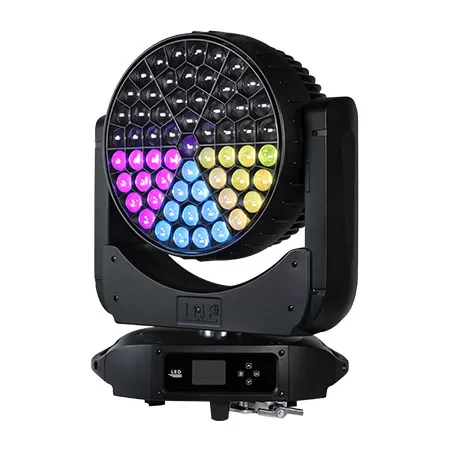
1000w 61x40w RGBW Stage Moving Head Wash Light LW1000
1000W 61x40W LED RGBW Mulichips Moving Head Wash Lights with Zoom (5°–50°), Covering Large Range and Long Distance. Designed to deliver a 5°–50° ultra-large zoom range to achieve a greater wash effect, illuminating stages and events with stunning lighting effects.
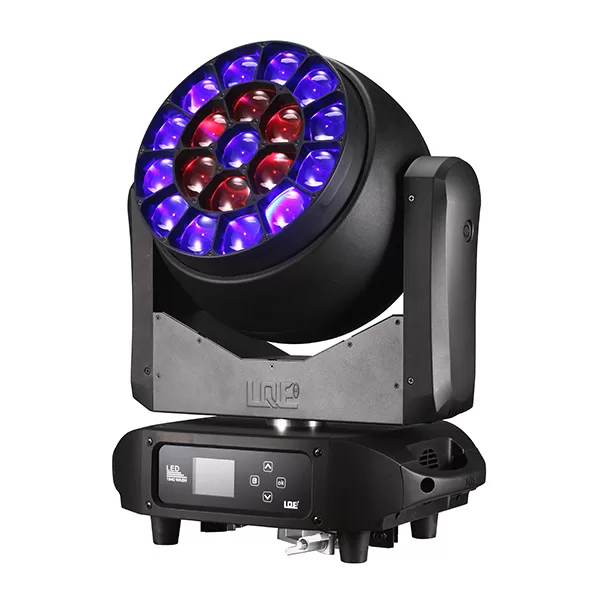
600w 19x40w RGBW Stage Moving Head Wash Light LW600 Zoom IP20
600W 19x40W LED RGBW Mulichips Moving Head Wash Lights with Zoom (5°–50°), Covering Large Range and Long Distance. IP20: Designed to deliver a 5°–50° ultra-large zoom range to achieve a greater wash effect, illuminating stages and events with stunning ring control lighting effects.
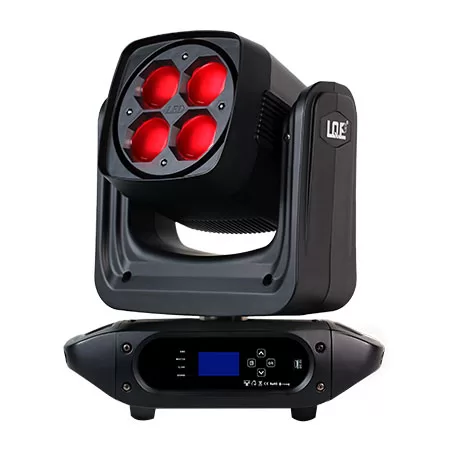
LED Moving Head Stage Wash Light LW200Z
The versatile moving head stage light provides a powerful lighting solution for theaters, concerts, and large outdoor performances. Suitable for theaters, TV stations, entertainment stages, and large outdoor performance scenes.
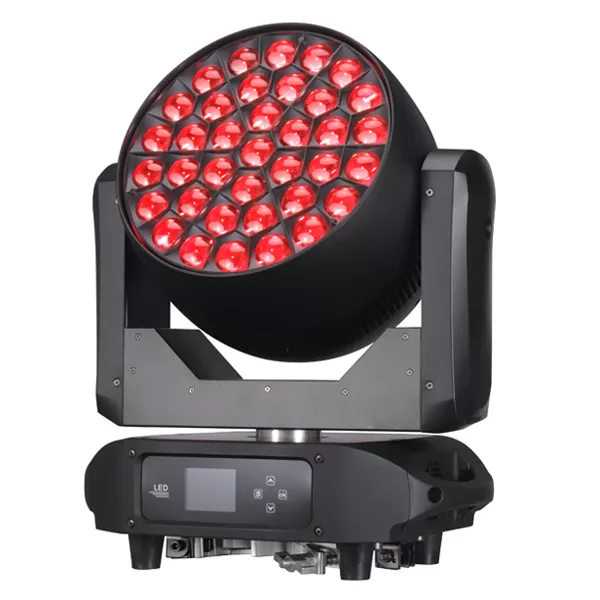
800w 37x40w RGBW Stage Moving Head Wash Light LW800
800W 37x40W LED RGBW Mulichips Moving Head Wash Lights with Zoom (5°-50°), Covering Large Range and Long Distance. Designed to deliver a 5°–50° ultra-large zoom range to achieve a greater wash effect, illuminating stages and events with stunning ring control lighting effects.

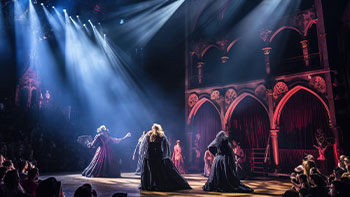
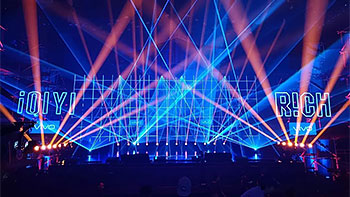
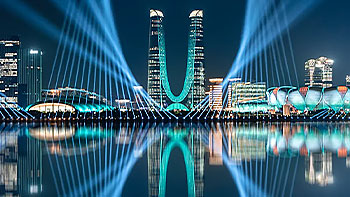
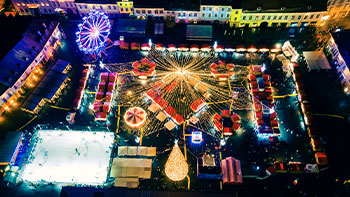
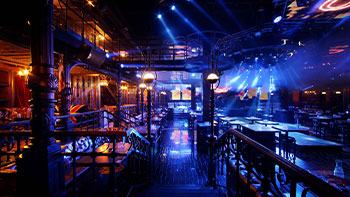
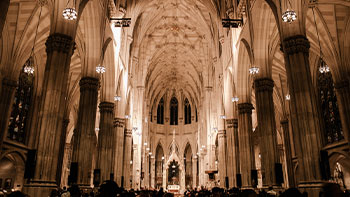






Linkedin
YouTube
Whatsapp: +8618924548390
TikTok